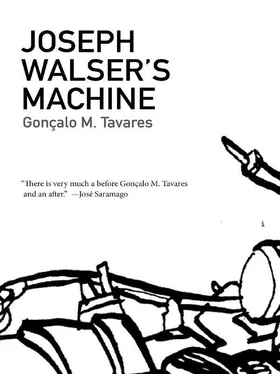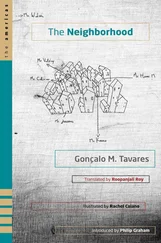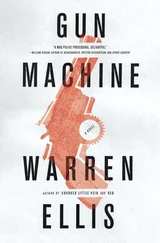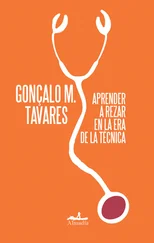The exteriors of prominent buildings had been modified; a building can always be dated with reference to important moments in time: for instance, before and after the explosion.
The explosion emerged from that hazy borderline between the elements and etched itself onto the human physiognomy in a strange and immediate way.
The attack occurred in the late afternoon, near a military outpost. The windows of a house — possibly tempered by the lack of curiosity of its owners — survived the impact intact. Two quiet old men who were in the vicinity remained silent. Only momentous changes, be they negative or positive, can modify ancient substances, which is precisely what certain old men are. An elderly couple woke up: “An explosion,” someone said.
Meanwhile the deft fire was making its way along the path of whatever materials burned best. Pieces of wood that burn quickly fell to the ground in minutes. The thigh of an adorable woman was inflicted with a shallow cut, which, surrounded by her prominent beauty, seemed obscene and inappropriate. Even so, death is disorderly; it doesn’t just descend upon the ugly and useless.
Soldiers who, from a distance, look more like the embodiment of History than people with real human characteristics, soon become enemies of this sort of abstract thinking once they get up close — because they can bleed. Once an evil as aggressive and impatient as a bomb gets too close to unprepared human bodies, it penetrates them, each piece of shrapnel entering like an unwanted morsel of food — death becoming defined as a wide fissure in the human body.
The attack was an attempt on the life of Ortho, the most important leader of the band of troops occupying the city, but it didn’t succeed. He was wounded, and was now dealing with the immediate damage and helping to attend to the dead soldiers who, a second earlier — back when they were still alive — had been accompanying him.
Two men were seen rapidly fleeing the scene. Ortho gave orders to search the area immediately: whoever detonated the bomb was close by, trying to get away.
And so the search for the two men moves forward, in the opposite direction of the ambulances that are just now arriving on the scene; the sound of the wind is so quiet and the clouds are so high and neutral that the ambulance sirens seem to be the only things in existence at this moment; only human elements are allowed to participate in certain specific activities epitomizing human intelligence — which is what a well-planned act of retaliation is, after all.
It’s true that unhappiness isn’t solely contingent on the presence of pain, but happiness, on the other hand, should be solely contingent on the absence of physical pain. Twenty centuries, whole and complete, haven’t been able to produce an explanation of suffering; suffering only exists by contrast with not suffering, and healthy men don’t want to be told about anything bad before it actually occurs. Resistance to pain must be practiced: people avoid any contact with that repulsive “thing.”
Certain soldiers called their shrapnel wounds “inverted caresses,” as if these reminded them of the display of infantile, childhood emotions. The world is constantly being traversed by both honest and dishonest angels; at times it even seems that buildings themselves are mobile, urban beings that have concrete wills all their own. A building collapsed.
The music on the radio is interrupted, and the microphone is handed over to a soldier who talks about an unfortunate incident and the righteous military force that is preparing to respond to it.
The curiosity of the masses comes in remarkable waves of repugnance and perversion; a tall man stands on his tiptoes and pushes a tiny woman because he wants to be the first to be sad, as if his number had been the first one called at the county recorder’s office; he stretches out his legs, which are already long, and sees bodies that are less logical, blacker, and more spread out from one another than they normally are, and picks up a certain frightening odor. Catastrophes pave the way for the appearance of benevolent Princes, who are equipped to reinstate civilization. Colossal kindness requires the necessary spectators; a man comes through the crowd yelling certain things, saying that he’s a doctor. The crowd gives him room, and the man who is a doctor passes through, proud that he has learned the secret names of medications and the precise ways to grip certain tools for the good of the city. Speed; cars honk their horns, the flow of vehicles seeks out the route that best suits the dead, the sky reduces its number of birds, which have either made themselves scarce or seem to be intruding impolitely: nobody can allow other songs to be sung when the national anthem has to be played, or when people are going to think it to themselves, even when these songs are coming from serene birds, who are in any case accustomed to being discreet and stepping aside whenever humans decide to exchange strong words or gunfire.
And the search continues: two men had been seen, but no one got a good look at them. There are some worthless clues, weak leads. Someone who said something, someone who saw something or almost saw something, someone who’s full of hunches and points around with his index finger a lot. Soldiers go into the houses that are near the site of the explosion, ask questions, respond brusquely to insignificant answers, but there’s no other kind of answer to be had; they make great haste, there’s a certain nervous excitement in the people, the enemy is sought with an inexplicable enthusiasm, love has never been sought after like this, never at any time, never in any place has anyone ever been so passionate in love as they now are in hatred; short-haired soldiers ask about family members who aren’t present, long explanations are given, one’s personal world finally begins to make sense when one is afraid, when one’s fear is great.
And thus it so happened that two men crossed paths in a neighborhood not too far away, walking in opposite directions; and their speed was suddenly curtailed. The two men stopped and looked; one is the boss of the other.
“Fluzst?”
“Foreman Klober.”
“Fluzst, in this part of town? Who would’ve guessed it? Did you hear the explosion? Have you heard what happened? Just look how you’re shaking, Fluzst, and look at your face! Are you scared? And that smell. How very interesting to find you here!”
A few hours had passed since the uproar. Sounds had returned back to normal, as well as movements. Apparently whatever had happened was no longer happening. The effects of whatever had happened had receded far away, to some other part of the hospital. As if they’d been forgotten about, thinks Walser.
And it was clear, at that moment, that memory must be intimately connected to space. Memory is a characteristic of space, not of people. A simple characteristic, like height, length, and width. “Memory is the fourth immediate characteristic of space,” says Walser to himself, as if about to make some important discovery. But sounds are also a characteristic of space, and there in the hospital room, still the most significant.
Walser is sitting with his legs stretched out along the length of the bed and his torso upright. He is trying to spot a nurse, but he can’t see anyone. He calls out for one in a loud voice.
The incidental background noises are still present. The situation is calm, but Walser wants to get out of there. He again calls out for a nurse or a doctor. No one comes. The murmuring sound of a quiet conversation can be heard somewhere in the hallway. They’re close by, it isn’t possible that nobody can hear Walser’s calls.
Читать дальше












